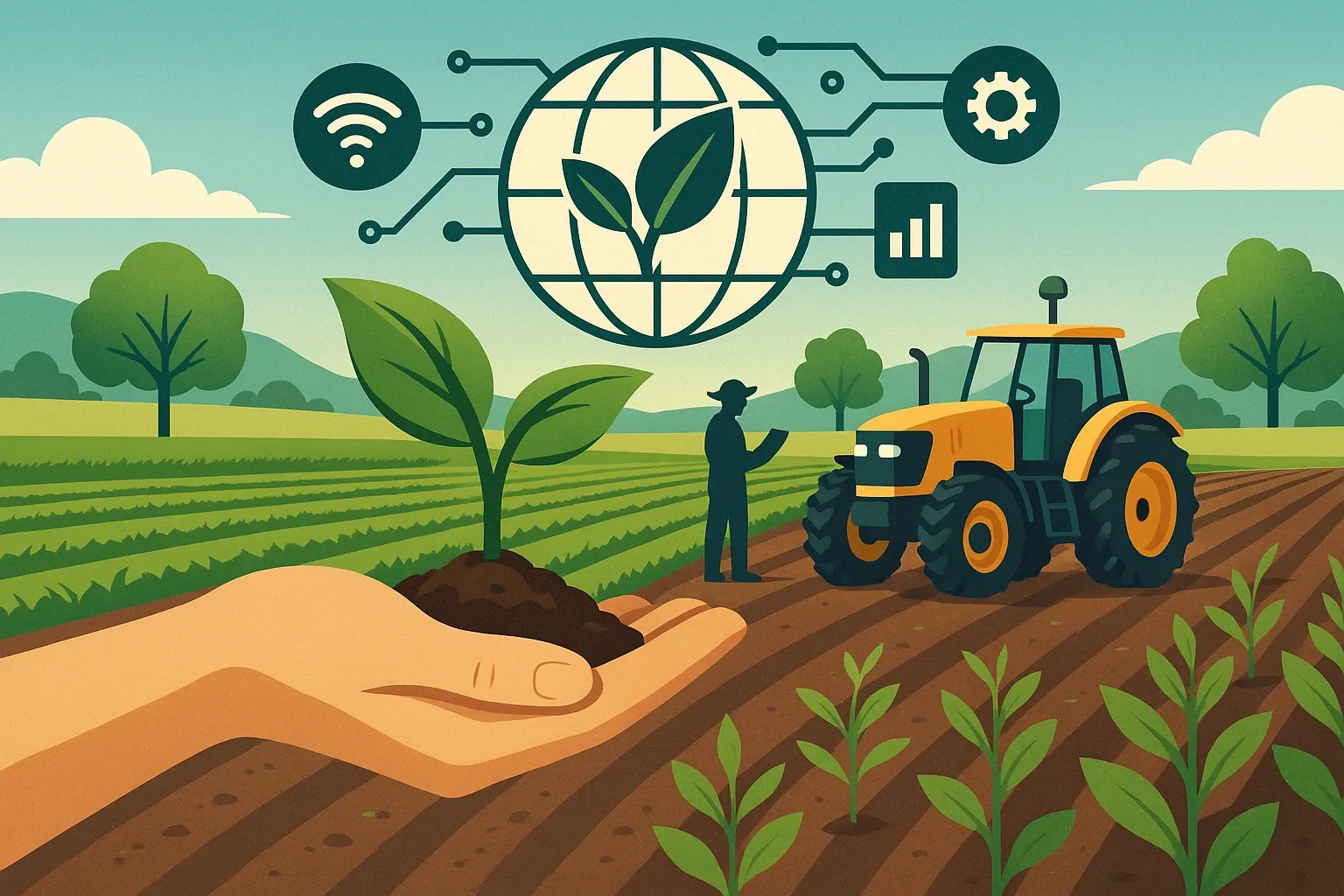+90 224 504 28 12 (TR)
Üçevler Mahallesi İzmir Yolu Cadde No:241/C Blok Westpoint D:32 Nilüfer, Bursa, 16120

Project Background
Agriculture in Europe faces critical challenges related to climate change, food security, and environmental sustainability. The increasing loss of arable land, yield reductions, and the spread of plant diseases and pests are threatening food production. At the same time, new biotechnological solutions such as New Plant Breeding Tools (NPBTs) offer sustainable methods to produce certified, climate-resilient, and high-yield seeds. However, there is a significant skills gap in the vocational education and training (VET) sector regarding these advanced technologies. The SUCSEED project was initiated to address this gap by empowering VET professionals with the necessary knowledge and practical skills to support the agricultural sector’s transition to more sustainable practices.
Project Programme
The project is funded under the Erasmus+ KA210-VET programme (Small-scale partnerships in vocational education and training). It runs for 15 months from November 1, 2024, to January 31, 2026, with a total project grant of €60,000.
Project Aim
SUCSEED aims to enhance the capacities of VET professionals and agricultural stakeholders by developing and promoting knowledge and skills on NPBTs and certified seed production techniques. The ultimate goal is to strengthen sustainable agriculture and ensure food security across Europe by training VETs who can guide farmers, producers, and other sector stakeholders.
Objectives
The project seeks to align agricultural VET training with the needs of the seed sector and promote healthy, certified seed production practices. It will develop the skills of at least 105 VET professionals through a comprehensive curriculum, interactive workshops, and field visits. Additionally, the project aims to foster networking and knowledge exchange between VETs, farmers, producers, researchers, and public/private sector actors through a dedicated Networking Platform. Field visits to innovative institutions will provide hands-on learning experiences and exposure to digital agricultural technologies. The project also supports European strategies such as the EU Green Deal and Farm to Fork by promoting sustainable and climate-resilient agricultural practices. In total, it will empower at least 150 VETs with new knowledge, good practices, and international experiences that can be transferred to their local agricultural communities.
Target Group
The project targets two main groups. The primary target group includes Agri-Food VET trainers, educators, and staff, Agri-Food counselors and local municipalities supporting VET centers, and teachers and students in agricultural universities, particularly in biotechnology and bioengineering fields. The secondary target group includes farmers and producers, seed certification agencies and research institutions, biotechnology companies involved in certified seed production, and private and public stakeholders investing in sustainable seed production and rural development.
Project Activities
Project Management and Implementation will focus on establishing effective communication and coordination among partners. The project will develop a Comprehensive Curriculum consisting of seven educational modules on NPBTs and certified seed production practices, complemented by interactive courses and active learning workshops for VETs. Practical Field Visits will be organized, including hands-on workshops and visits to leading seed companies, laboratories, and gene banks in Portugal to provide practical skills and real-world applications. A Networking Platform will be created to connect VETs and stakeholders, share good practices, promote certified seed centers, and maintain an updated digital guidebook on the seed sector.
For more information, please visit our project website: https://sucseed.org/